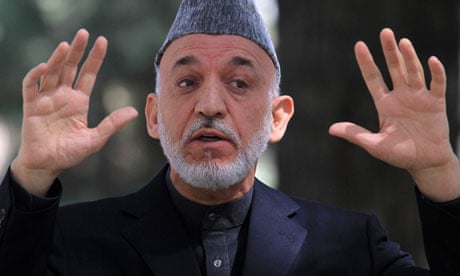Afghanistan has fixed the date for its next presidential election, when voters will chose their first new leader in more than a decade, but even with 18 months to prepare, the government may struggle to tackle worries about security and fraud.
The Independent Election Commission (IEC) said the vote would be held on 5 April 2014 after four months of campaigning. Elections to provincial councils will be held at the same time.
Polls in 2009 and 2010 were marred by serious corruption, falling turnout and a rise in security problems as the Taliban targeted election booths, voters, poll workers and candidates.
Afghanistan has been working on legislation and an electronic voter registration system to try to avoid fraud, and activists said a firm date and election timetable would make it easier to measure progress.
"The announcement of the calendar is a positive development and we certainly welcome this," said Ahmad Nader Nadery, chairman of the Free and Fair Election Foundation of Afghanistan, and a former commissioner on the country's Independent Human Rights Commission.
"There are other issues that are pressing now we have the date in front of us … for the IEC and the election to be trusted, and for people to go back and enthusiastically participate as voters and candidates, reform needs to be pursued much more aggressively."
The vote will chose a successor to incumbent Hamid Karzai, who has run the country since the 2001 ousting of the Taliban, first as a nominated leader and then after winning two successive elections.
The constitution bars him from running again, but there have been persistent concerns among some of his critics that he might try to alter the constitution to make way for a third term. A firm timetable could boost confidence that he plans to bow to the law, although he is expected to be heavily involved in the election.
"The question many people have been asking is whether Karzai is going to actually step aside and let someone else be president," said Heather Barr, Afghanistan researcher at Human Rights Watch. "The choosing of a date goes some way towards assuaging those fears."
The United Nations welcomed the decision and committed to supporting the elections, and the US embassy described the date as "more than a day on a calendar".
The US ambassador to Afghanistan, James Cunningham, said: "It is symbolic of the aspiration of Afghans for elections which will be crucial for Afghanistan's future stability. This will be an Afghan process, with the US and the international community prepared to provide support and encouragement."
That support is likely to be much needed, as the Afghan government tries to fill gaps left by foreign troops. In past elections Nato forces have helped with security at voting booths in places dominated or strongly threatened by the Taliban, and helped ferry ballot boxes, poll officials and voting papers between remote parts of the country.
Many of those troops are due to leave by the end of 2014, and by April of that year will have limited resources.
"[The IEC] has had to compromise between the fact that the later it pushes the date, the less it has in terms of international security, and the earlier it hosts it the less time it has to get ready," said Barr.
Additional reporting by Mokhtar Amiri
